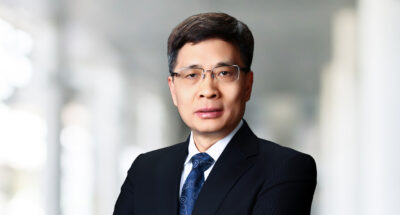
Zhou Yunjie: Haier's innovative management model drives global growth
Haier's CEO Zhou Yunjie explains how the company's innovative "RenDanHeYi" model empowers employees, drives global growth, and adapts to market changes....
November 3, 2025 • by Susan Goldsworthy in The Interview
Olympic champion Oliver Zeidler shares how resilience, reinvention, and a beginner’s mindset shaped his journey from sports to MBA and leadership growth....
In both sport and leadership, the moments that define us are rarely the easiest ones.
Olympic champion Oliver Zeidler knows this better than most. After missing out on Rio in 2016 as a swimmer, he switched to rowing, became world champion within three years, and then faced one of his hardest tests at the Tokyo Olympics. Now, as an MBA participant in Lausanne, he’s exploring how to channel that same discipline and curiosity into a new arena.
What connects each chapter of his journey is not victory, but the willingness to start over, to learn, to adapt, and to keep growing. In his words: “Sometimes the best thing you can do is to become a beginner again.”
Within just three years of taking up rowing, he became world champion, a result built as much on intention as on talent.
Zeidler grew up surrounded by champions. His grandfather, Hans-Johann Färber, won Olympic gold in rowing, his aunt, Judith Zeidler, also became an Olympic champion, his father, Heino, now his coach, was a national-level rower, and his sister Marie competed internationally.
“My family was always a source of strong support for me because they all understood what it means to perform on a high level,” he said. But it was his grandfather who first taught him the importance of studying and working alongside sport. “He always said that education should never stop, even when you’re training hard,” Zeidler recalled. “That’s something I’ve really kept with me.”
Despite his family history, Zeidler’s own path was never set in stone. After narrowly missing selection for the Rio 2016 Olympics as a swimmer, he made a bold choice. At 20, he traded the pool for the lake. “It was the best decision of my life,” he reflected. “It was an unusual step at that age, but it allowed me to start from zero, to learn again.”
Within just three years of taking up rowing, he became world champion, a result built as much on intention as on talent. Alongside training, he spent nearly a decade at Deloitte and earned degrees in taxation. “It gives you a good balance if you have something to challenge you mentally,” he explained. “In consulting, I worked my head; in rowing, my body. They motivated each other.”

But even champions can stumble. For Zeidler, that moment came at the Tokyo Olympics. As the reigning world champion, he entered as the favorite, carrying the hopes of a nation that hadn’t seen a medal in his discipline for two decades. Then, in a stunning turn of events, he finished fourth in the semi-final and missed the final.
The loss cut deep. “It was devastating,” he recalled. “When you go in there as the reigning world champion, the favorite for gold, a whole nation expects you to do well… and then you fail? That was tough.”
Afterwards, he took time to reflect. “I took one or two months off to just understand what I really wanted to do,” he says. It was during a visit to a friend in Switzerland that clarity came. Standing by the shores of Rotsee in Lucerne – his “favorite lake, the Lake of Gods” – and watching the regatta preparations, he decided to return. “That is where I decided to go for another Olympic cycle because I really wanted to race and win on that lake again.”
This time, he approached the sport differently. He turned to sports psychology – something he had once dismissed. “Before that, I always said that I didn’t need psychology at all, that I could handle it on my own,” he said. “But that was a huge mistake. If I had started earlier with sports psychology, I would have understood a lot more about myself and how I can prepare properly for a race.”
Working with a psychologist helped him face what he had been trying to avoid. When he finally returned to compete at the Paris Olympics, he carried those lessons with him. “Before the semi-final, I knew this was the race where I lost it last time,” he says. “There was still some pressure, and even if we went through the whole grieving cycle, there were still some demons with me from Tokyo. But as soon as the call came, it was just a case of executing the race plan.”
He crossed the line with an Olympic record, almost five seconds faster than the previous mark. “I remember going to the cool-down area and really taking two minutes to just cry my eyes out,” he laughs.
“Resilience is often used as a buzzword,” he reflected, “but I can say from experience that handling upsets and coming back stronger made me a better person and a better athlete.”

“I always came from this competitive background where if you don’t put your best into the work, you won’t be in the boat. But in business, people manage their energy and time differently.”
When Zeidler joined the IMD MBA, he was once again stepping into unfamiliar waters, swapping oars and finish lines for case studies and leadership labs. “At some point, I realized I wanted to do something completely different,” he said. “That’s when the MBA came up as an idea because you have a lot of time to reflect there… to widen your knowledge base and then have the opportunity to change careers completely.”
For him, this wasn’t just another qualification. It was another act of reinvention, a conscious choice to be a beginner again. “That’s what I did from swimming to rowing,” he said. “That’s what I did from school to consulting, and now MBA. The next step, let’s see what it is.”
Despite his Olympic title, Zeidler arrived in Lausanne not as a champion but as a learner among peers. “At the beginning, it was challenging because there are a lot of cultures coming together,” he recalled. “I always came from this competitive background where if you don’t put your best into the work, you won’t be in the boat. But in business, people manage their energy and time differently. That was challenging for me to accept.”
That shift, from individual pursuit to collective success, has been defining. “I definitely needed to find compassion and to try and understand what drives people,” he said. “It’s so valuable in leadership: not just focusing on your own agenda but understanding how others work best and how to achieve the best result for the team.”
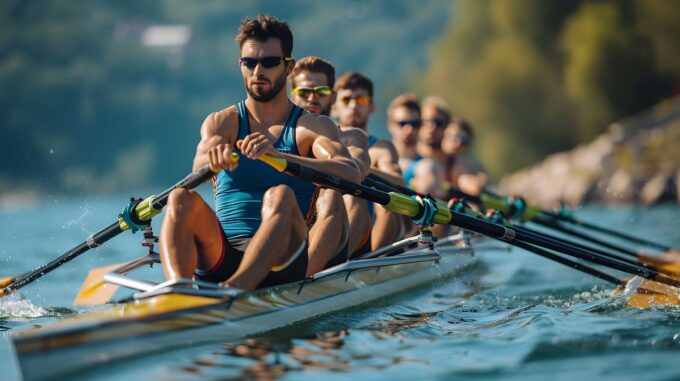
Zeidler’s definition of success has since evolved. “I would like to take more responsibility,” he said. “Becoming an effective leader is my ultimate goal. It’s not about a certain position; it’s about enabling others to achieve their goals.”
That perspective stems from his core values. “I’m convinced that if you work hard, it pays off at some point,” he said. “Rowing is a sport where you need to put a lot of work into becoming successful, and that’s why you respect the others around you as well.”
He hopes to bring that ethos into business. “Athletes are great people to have in companies because they bring a different kind of experience: hard work, respect, and the ability to perform under pressure,” he said. “To carry that into a company culture would be very cool.”
His advice for those navigating uncertainty is simple yet powerful: build security where you can, do what you love, and keep exploring. “Managing this security with a bit of uncertainty is really important,” he said. “The most important thing is having fun in what you’re doing, otherwise it’s not sustainable.”
For Zeidler, success is no longer about medals, but about the mindset to begin again: in sport, in business, and in life.
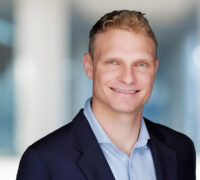
Olympic Champion & Multiple‑Time World Champion in Men’s Single Sculls
Oliver Zeidler is a world-class rower and multiple-time World and European Champion in single sculls. Coming from a family of elite athletes, he initially excelled in swimming before transitioning to rowing. He holds an LL.M. in Taxation and has completed executive education at IMD, blending athletic discipline with business insight.
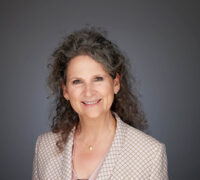
Affiliate Professor of Leadership, Communications and Organizational Change at IMD
Susan Goldsworthy OLY is an Affiliate Professor of Leadership, Communications and Organizational Change at IMD. Co-author of three award-winning books, she is also an Olympic swimmer. She is a highly qualified executive coach and is trained in numerous psychometric assessments. She is Director of the IMD Executive Coaching Certificate and Program Director of the Leading Sustainable Change program.

March 11, 2025 • by Mark J. Greeven in The Interview
Haier's CEO Zhou Yunjie explains how the company's innovative "RenDanHeYi" model empowers employees, drives global growth, and adapts to market changes....
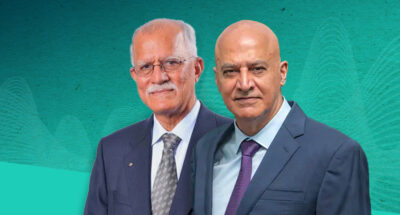
February 12, 2025 • by Marleen Dieleman in The Interview
Tolaram, the Singapore-headquartered family business, has global interests in logistics, consumer goods, and technology. Family members Mohan Vaswani and Sajen Aswani discuss the company’s values-based system of meritocracy, the family’s move to...
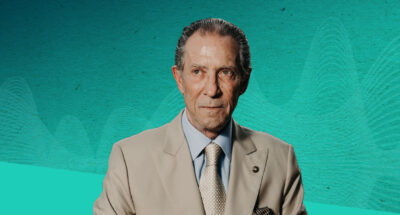
January 14, 2025 • by Peter Vogel in The Interview
In conversation with IMD's Peter Vogel, Bruce Grossman, a fourth-generation family business owner, discusses his achievements and shortcomings in creating frameworks to unite the family business....

December 3, 2024 • by Peter Vogel in The Interview
Cristina Carvajal, President of one of Latin America’s most respected family enterprises, discusses the benefits of having a family member as the CEO of the family business....
Explore first person business intelligence from top minds curated for a global executive audience